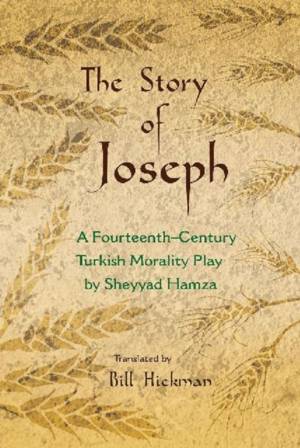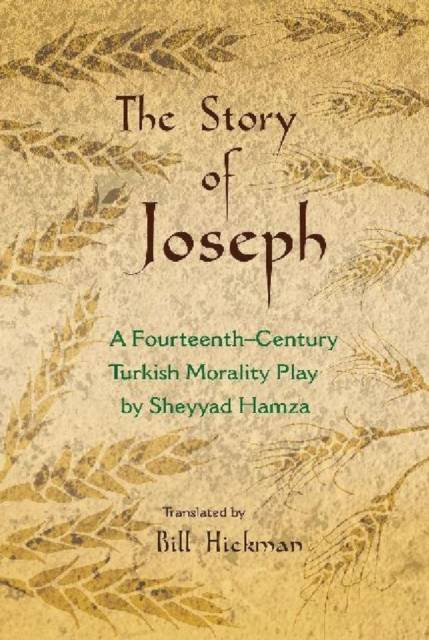
- Retrait gratuit dans votre magasin Club
- 7.000.000 titres dans notre catalogue
- Payer en toute sécurité
- Toujours un magasin près de chez vous
- Retrait gratuit dans votre magasin Club
- 7.000.000 titres dans notre catalogue
- Payer en toute sécurité
- Toujours un magasin près de chez vous
The Story of Joseph
A Fourteenth-Century Turkish Morality Play by Sheyyad Hamza
Description
At the heart of this volume is the translation of a fourteenth-century Turkish version of the Joseph story, better known to Western readers from the version in Genesis, first book of the Hebrew Bible. Hickman provides us with a new lens: we see the drama of the Old Testament prophet Joseph, son of Jacob, through Muslim eyes. The poem's author, Sheyyad Hamza, lived in Anatolia during the early days of the Ottoman Empire. Hamza's composition is rooted in the recondite and little-studied tradition of oral performance--a unique corner of Turkish verbal arts, situated between minstrelsy and the "divan" tradition--combining the roles of preacher and storyteller. A cultural document as well as a literary text that reflects the prevailing values of the time, Hamza's play reveals a picture of Ottoman sensibility, both aesthetic and religious, at the level of popular culture in premodern Turkey. To supplement and contextualize the story, Hickman includes an introduction, a historical-literary afterword, and notes to the
translation, all ably assisting an unfamiliar reader's entry into this world.
Spécifications
Parties prenantes
- Editeur:
Contenu
- Nombre de pages :
- 168
- Langue:
- Anglais
- Collection :
Caractéristiques
- EAN:
- 9780815633570
- Date de parution :
- 08-05-14
- Format:
- Livre relié
- Format numérique:
- Genaaid
- Dimensions :
- 145 mm x 216 mm
- Poids :
- 308 g






